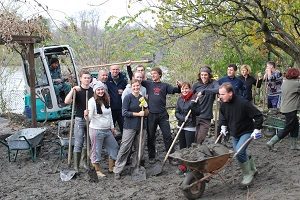
It seems like everyone has busier schedules than ever. People across the nation complain about not having enough time to spend with their family, their friends or to dedicate to their hobbies. As such, willingly dedicating what little free time a person has to an organization or another person as a volunteer has come to be regarded as one of the most generous acts a person can commit. Over half of respondents to a Barna survey stated that volunteering for an organization is one of the most generous things a person can do.
Interestingly, according to the same survey, people who volunteer more often are more likely to regard volunteering as a particularly generous activity. Over 60 percent of survey respondents who had volunteered in the last six months stated that they felt volunteering was an act of generosity. The numbers were similar for those who had volunteered in the past week and those who had volunteered in the last month. Among those who never volunteered, however, a little over 20 percent of respondents felt that volunteering was an act of generosity. This may be due to the fact that those who do not volunteer have an inaccurate perception of how much time volunteering really requires or feel that people who volunteer do so because they enjoy it and are thus spending time on what they would prefer to be doing anyway.
Christians tend to place a high level of importance on volunteering, but Christians are split over whether or not volunteering can be used interchangeably with financial giving. Pastors, interestingly enough, overwhelmingly stated that the two could not be used interchangeably. Parishioners, on the other hand, favored seeing the two as interchangeable.
Volunteering is always a good idea in local communities as well as with large, national level organizations. Volunteering allows people to both connect further with their own communities as well as form connections with those they might have otherwise rarely encountered. It strengthens churches, communities and the individuals involved. There is a reason people always encourage it.


